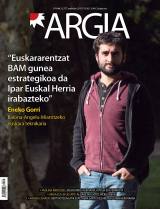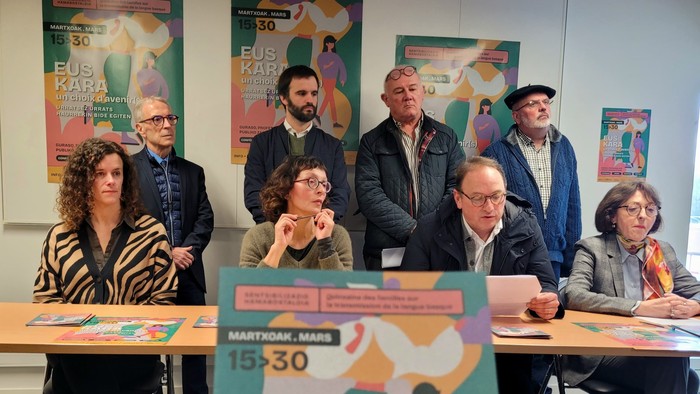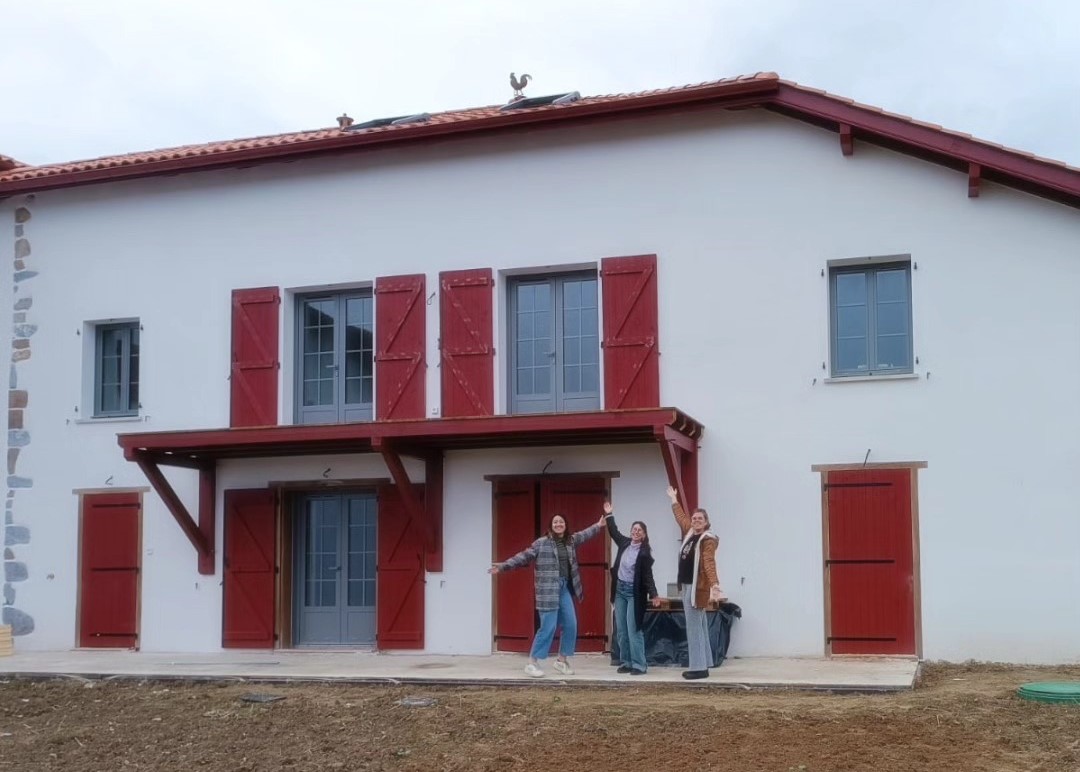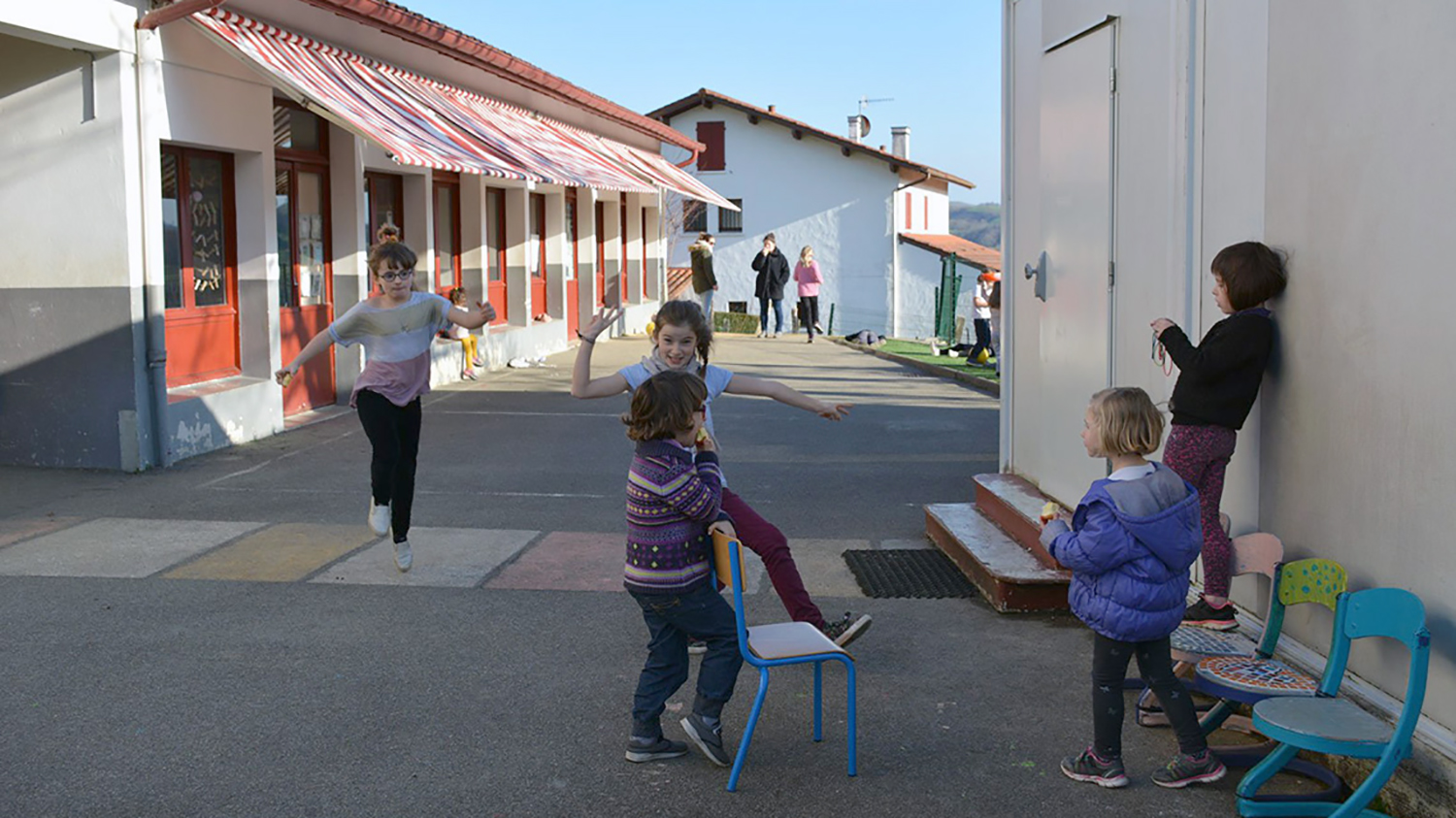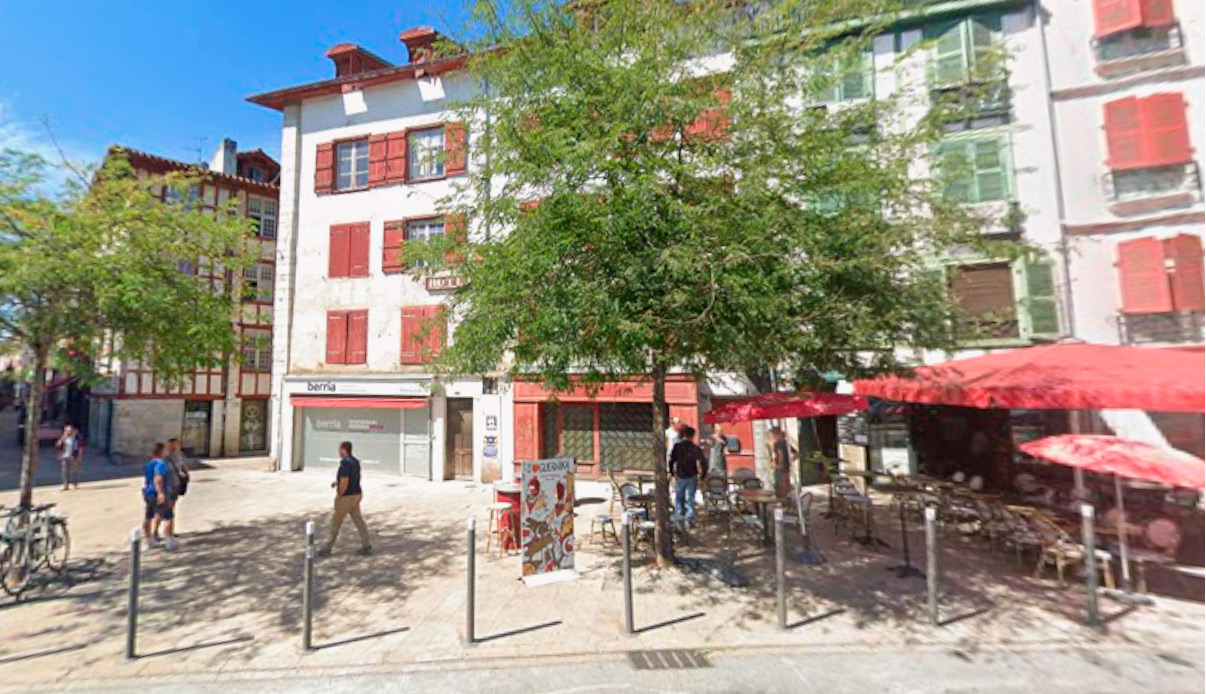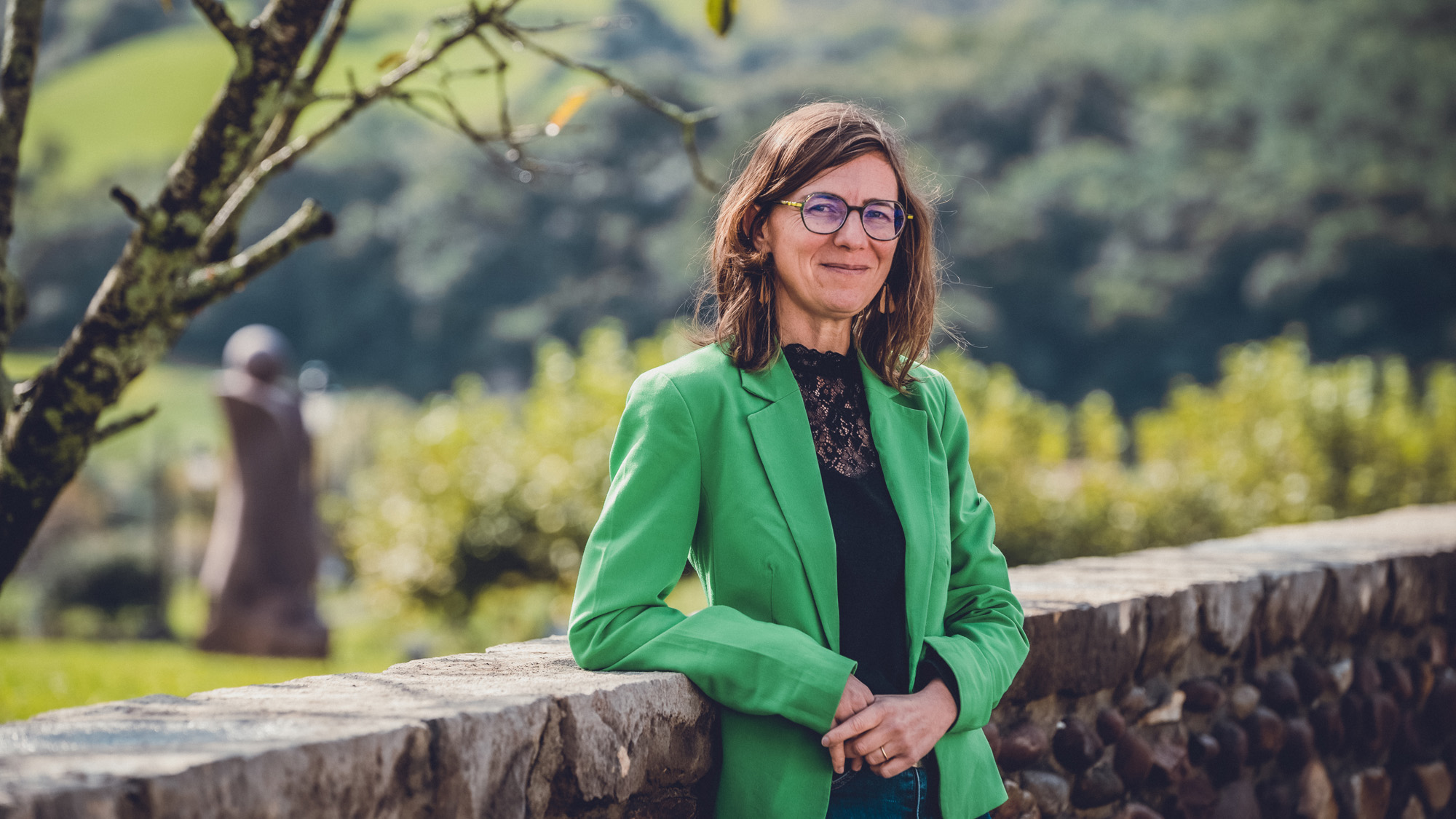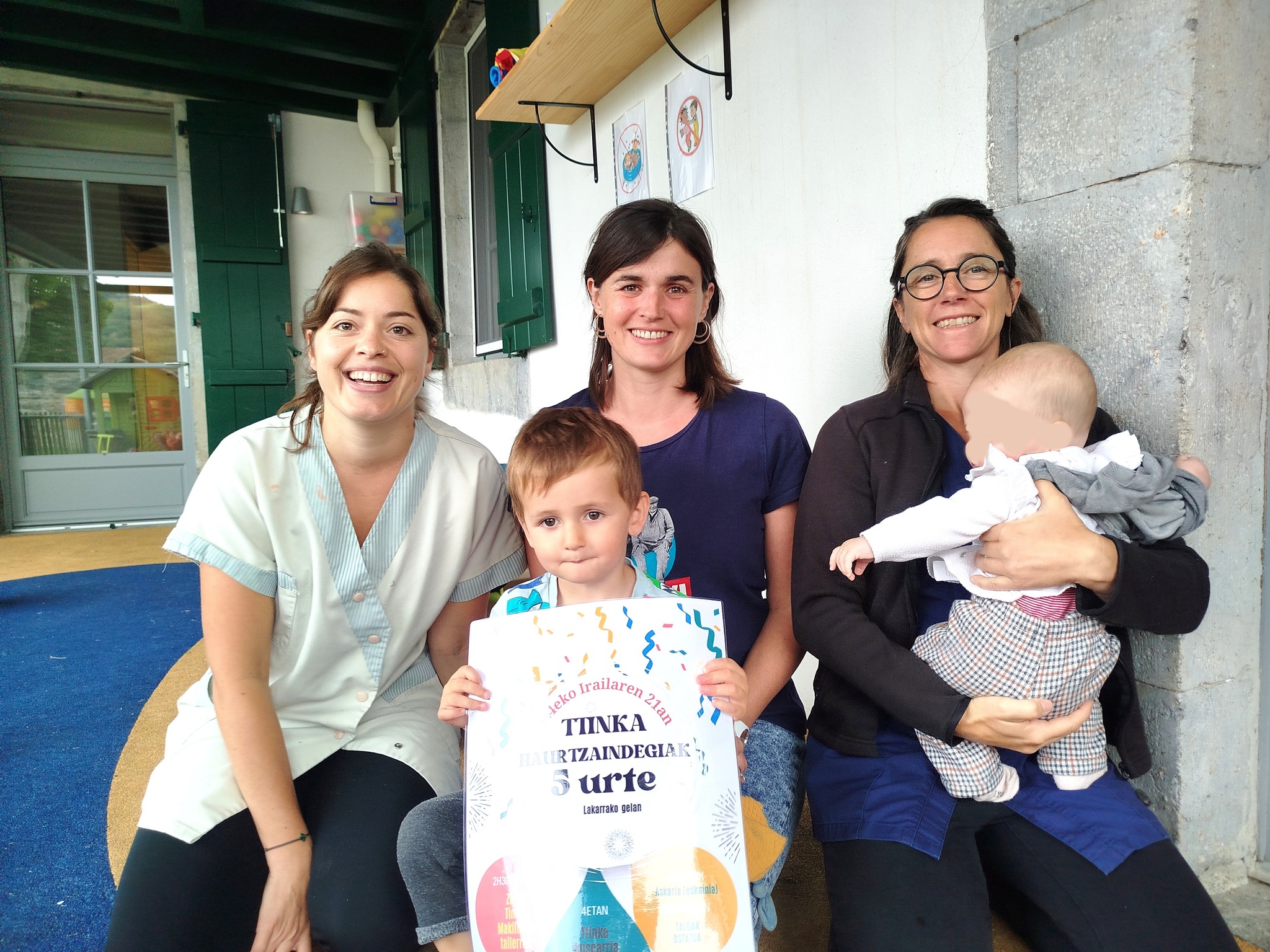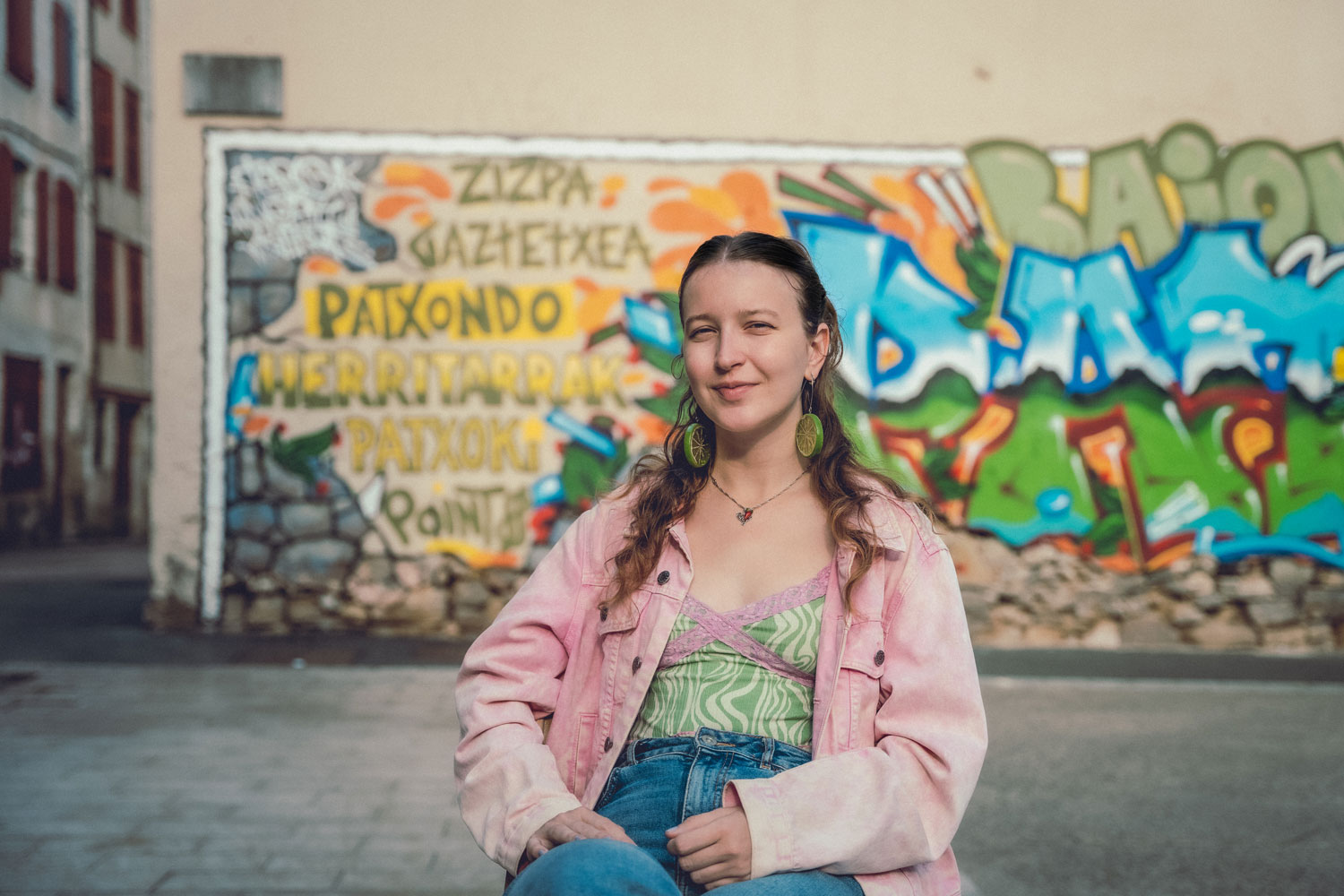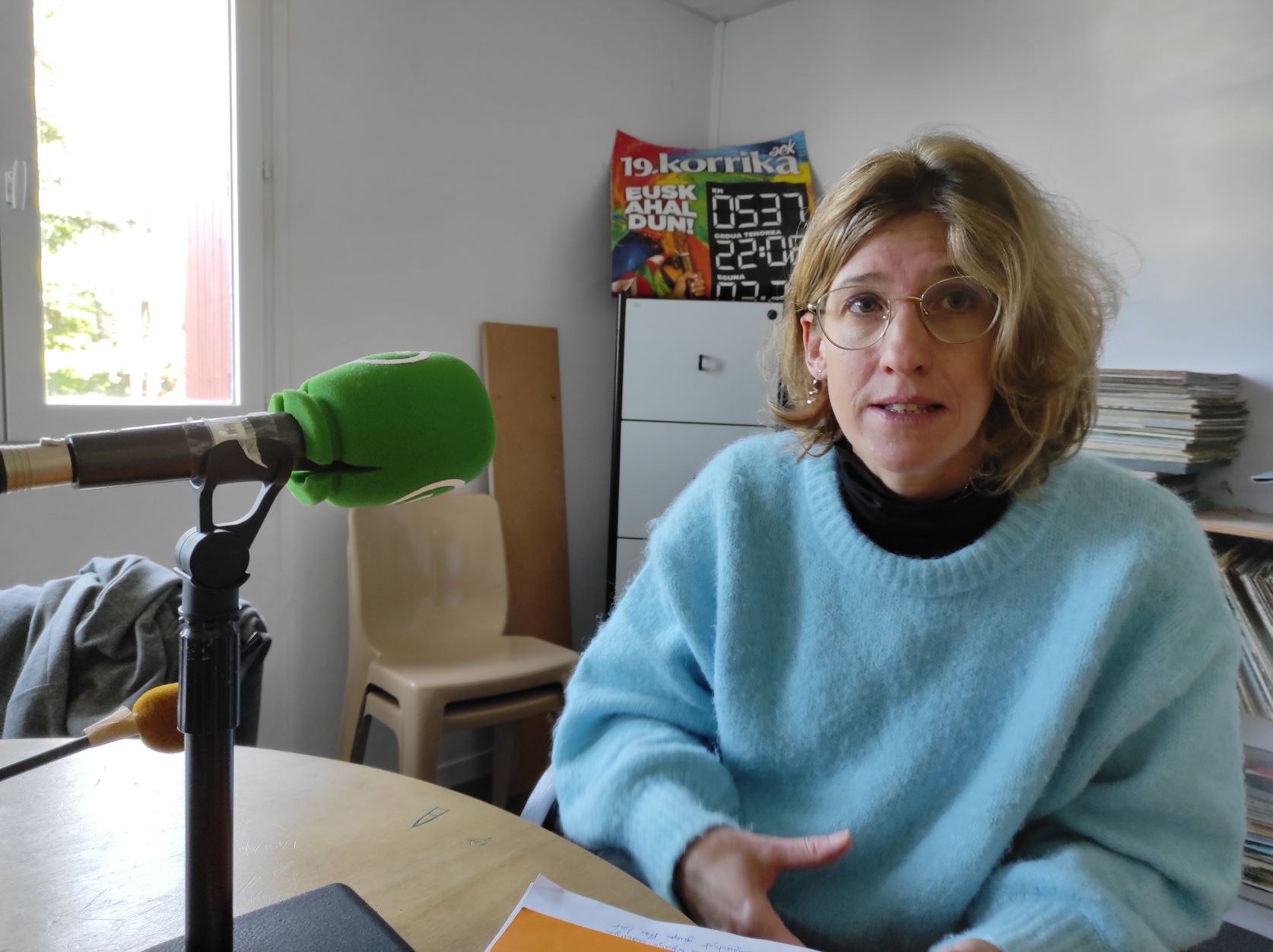"On the coast of Lapurdi the urban model has a much greater influence than the linguistic policy"
- Eneko Gorri (Angelu, 1983) is a militant and technical Basque of the House of the People of Biarritz. The urban model of the coast of Lapurdi has drawn attention to the great influence it has on the evolution of vasco-speakers: “If Biarritz multiplied the budget it gives to the Basque country by ten, it would not have a great effect by 50 or 100 years.” The model of society believes that Euskaltzales will reach more innocent waters.
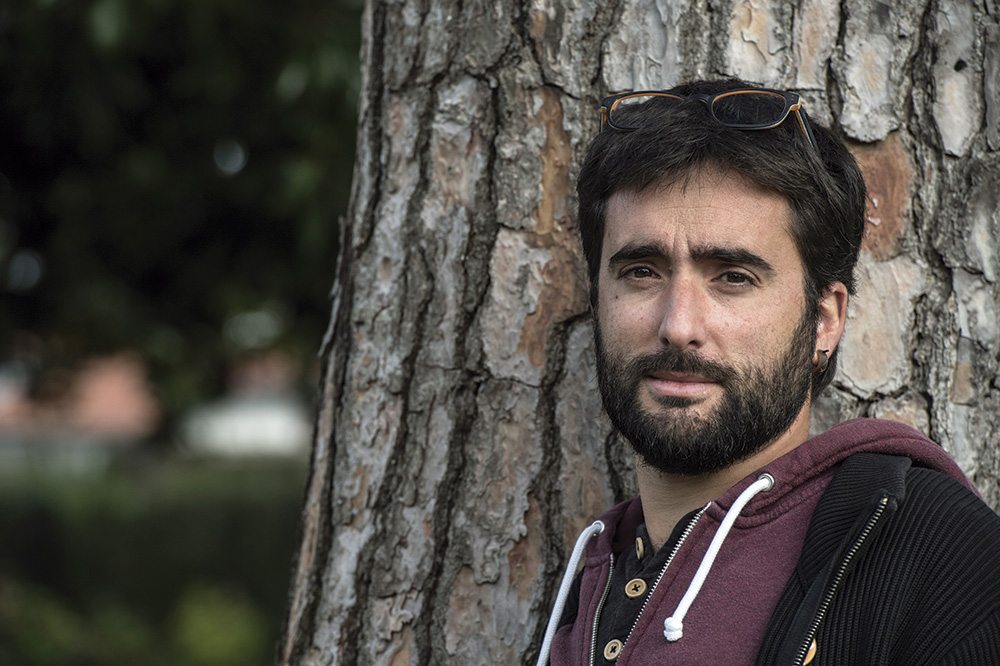
The Basque data from the region of BAB Baiona-Angelu - Biarritz are as follows: Euskaldunes 8% and street use 2%. What is the point of thinking about this data?
Seeing what the context is, that is, the linguistic capacity is so low, the linguistic landscape predominantly French, and the fact that it is an urban space, that is, anonymity and others... 2% is almost a small miracle, I don't know where it comes from.
Do you think so much?
Not very much.
The use of knowledge has been provided to me.
That's it. It is known that both in Baiona and in Biarritz the Basque speaker has a very opposite context, due to the factors mentioned above, and that speaking in Basque is not spontaneous on the street, but is always the result of a conscious choice and the result of a personal or collective struggle. We are far from the normal situation. However, we are building spaces to live more comfortably as speakers and rule out linguistic stress and I would say that it is easier to live like Euskaldunes than it was 10-20 years ago.
Attitudes in favor of the Basque country have decreased. The more positive policies, the stronger the adverse reactions?
I don't know. Surely it is all, and I will say it in quotation marks, that today a social consensus has been built around the Basque country, which did not exist 15 years ago.
The fundamental question is whether this consensus is the result of a paradigm shift or is something of a given time. Finally, it is only ten years since we started developing language policies and as language policies are by definition transformative, we will reach a point of violent criticism. I do not know if lowering the attitude in favour of the Basque country is the beginning of that point of crispation. We want to change the picture ten years ago, and we're going to build an Euskaldun society, or at least bilingual. Resistance, inertia will be forced.
If we look directly at the results of the last socio-linguistic survey, people say that they agree that their children learn Basque, they agree that in order to work in the public service they have to learn Basque, but when the Basque enters their daily opposition. In the public media, on the radio and on television, they are opposed to the increase in Euskera. This is a hypothesis, but one might think that in Ipar Euskal Herria the Basque Country is tolerated more than ten years ago, but we have not yet achieved real recognition.
It is a fundamental debate that today the winds are in favour of the Basque Country, and that in ten years' time we do not know whether we will have them in favour or against. So, they can be two strategies, or we go ahead because we have to do a lot of things, and today the context allows it, or we are going to do warm linguistic policies that we develop so as not to break social consensus.
“25 years ago in Biarritz 1% of the children studied Euskera in the center, 25 years later 25% studied”
BAB Bayonne – Anglic-Biarritz is the most disconnected area. What do you mean?
It is disconnected on all sides, both by knowledge data, use, favorable attitudes and the history of each family. In part, the language policies developed in the BAD are somewhat artificial. We are not going to recreate something that has disappeared, but we are building from scratch. Many families who have come from outside to live in Euskal Herria settle on the coast of Lapurdi, in the area of BAB, and in their history have no vestiges of the Basque Country, acquire something from the sky, they choose the Basque country for their children. The recovery of the Basque country in the whole of Ipar Euskal Herria will pass from the youth generations, but at BAB-Berdeak we do not have the strength or the naturalness of the family transmission, the nurseries and schools transmit the Basque almost 90%. That’s why I say disconnect and artifizialtasuna.Horrek won’t get us not to say. On the contrary, 25 years ago in Biarritz 1% of the children learned Basque in the centre, 25 years later 25%. We can do this along that road, but we must be aware that we are not going to have to carry a job like that of the interior of Ipar Euskal Herria, we have to work differently because the situation is totally different.
The population of Ipar Euskal Herria is 120,000 inhabitants.
It is a strategic space for Euskera and for those of us who believe in another model of society. Looking at Euskera, that's where the critical mass lives. We are aware that Ipar Euskal Herria is experiencing a great time of urbanization, and gradually he is entering the lands of the interior of BAB. The desire to unify society goes further and further, at a time Baiona, Biarritz, Angelu, Basusarri, Arbona, Bokale, La Capital were devassed, and now all that territory from Hazparne to Luhuso is devassing. If in 2050 we do not have the Basque country in the BAB area, the victory in Ipar Euskal Herria will be very difficult. The BAB field is not easy, but that is where the great battle is strategically played.
And it is nothing to underestimate the work to be carried inside, but quite the opposite, that is to say that we have to carry out asymmetric work, not the same and with the same resources as in the Amikuze region, for example, and in the BAB area.
.jpg)
You want to talk about the influence of the urban model on language.
What people, vasophiles, don't have enough interiorized is that the other public policies they develop in public administration have a much greater influence than linguistic policy. For example, I am convinced that if today Biarritz multiplies by ten the budget it gives to the Basque Country and employs twenty other workers to work, however, it would not have much influence on the situation of the Basque Country in 50 or 100 years’ time. Why? Because the urban model, the tourism model, the housing policy, is going to have much more influence than the linguistic policy.
In Biarritz, for example, rent prices are so high that families escape, schools close and we cannot count on young generations to regain Euskera. The population ages, comes from outside and that has a huge impact.
Urbanism is not mentioned at all and there is an urgent need to reflect on this issue.
“If we don’t win Euskera in Baiona-Angelu – Biarritz by 2050, it will be very difficult to win in Iparralde”
He says that the urban model he has just exposed is spreading inwards.
The cities of the FLA are saturated, you can't build more, what do the promoters do? Little by little they go to Uztaritze, Hazparne, Itsaso, Luhuso. The Basques there say that it has a great influence, but bringing that discourse is very difficult. Therefore, we have to make a mold to awaken awareness.
Is the AMPA militant aware of the area in which he lives?
It is very important that the militants internalize the perimeter of BAB, when we talk about it to the people, they say, “yes, but I have as axis Euskal Herria, I Ipar Euskal Herria, I Lapurdi”. All right, but in my opinion, there is a desire to flee the BAD, because getting involved in this territory means going to confrontation with the people and I do not know if we are willing to that militancy of today. I do not say that as a Basque technician, but I think we will have to reflect on the political and the Basque. We have to do the same thinking as in Vitoria or in Pamplona, in the big cities.
We will have to admit that those of us who live in the BAD are salmon and that we will always have to fight the current, the currents are fast. For example, I live in Angelu, I politicise in Baiona and work in Biarritz. I've always been salmon, and I've always had that awareness. The salmon never runs out, it always has to go to its head and it will always walk in the river against the stream, but one day it will reach more innocent waters. To do this, we will have to empower thousands of salmon in the HABs in the coming years.
How to structure the linguistic policies of public institutions, the Basque Country, citizenship? I'll give you two examples. The Mintzalasai project works in collaboration and the BAB dynamic of social activation between 27 November and 3 December has been driven by the Basque world.
It is not a coincidence and it is the result of collective reflection. Seven years ago, we created Mintzalasai in Biarritz, and it emerged from a diagnosis. The Basque cultural activity was being sectorized, the teaching of adults, ikastola, nurseries, leisure time, cultural associations... and this professionalization meant the atomization and the little relationship between them. They had many ideas and few resources. Municipalities have a lot of resources and little value.
Mintzalasai was the first to put on the table the strengths of each. The associations had the most daring ideas and the ability to mobilize, and the administration provided resources to work, both in money and legally, in infrastructure, etc. There has been great complicity with Mintzalasai for six years and this year we have moved from Biarritz to BABE.
On the contrary, we Euskaltzales living in the BAB area felt that social activation could not be carried from the institutions, even with the help of the institutions. For now, at least, we've thought about it. We thought we had to do a horizontal job, collectively and out of all the acronyms. It has been a choice, perhaps not the right one.
"As language policies are transformative, we will reach a critical point at any given time"
In terms of social activation, the BAB dynamic was carried out in the Egia district of Donostia between November 27 and December 3. You have approached the Lasarte-Oria model, but with your nuances.
We have not invented anything, we have built it from the footprints left by others. However, we did not want to take the whole recipe, as the road is built. BAB are the three main cities that do not have a place in the village, where tens of thousands of people live, but that do not have the configuration of the cities we know in the Basque Country. Local militants have little relationship with each other. There are four ikastolas in the BAD and they have no relationship.
We have formed a motor group of 25 people, all of them Basque, from different generations, also guaranteeing gender diversity, people with a different socio-linguistic profile. Many of us have said that the creation of the BAB dynamic has also been a good collective of self-therapy for us, because we all want to live in Euskera, but not all of us took that step. After four months of self-therapy, we've already begun to empower ourselves before we begin the BAB dynamic.
We remind you of the project Euskarak 365 egun (Euskaraldia), organized by the Basque Government and Topagunea for next year 2018.
In 2018, for eleven days, if we want thousands and thousands of speakers to be empowered and to act throughout the Basque Country, each territory must be allowed to make its own way. We had it clear from the beginning: If this project is to be carried out in November 2018 in the Basque Country, the first thing you have to do is to do the BAD. And BAB has to be the first, it has to do before Itsasu, Maule, Baigorri or Garazi, not to open the way, but what the BAD does will be lower than the others. We will do it now and we dream that tomorrow will be done by Hendaia, Senpere, Sara... and that all Ipar Euskal Herria will be ready by 2018.
Plazara, AEK, Uda Leku, Dindaia eta Ebete antolakundeak Baionan elkartu dira Famili'on egonaldi ibiltariaren lehen edizioa aurkezteko. Hizkuntza mailaren arabera eskaintza bat edo beste egongo da eta haur zein gurasoentzat izango da udaberrian.
Hizkuntzarako ere gurasoak haurrentzako eredu direla kontuan hartuta, euskararen erabilera eta irakaskuntzari buruz sentsibilizatzeko helburua duen hamabostaldia antolatu dute Hendaia, Urruña, Donibane Lohizune eta Ziburuko herriek. Martxoaren 15etik 30era guraso... [+]
Nafarroa Beherean, Aiherrako 'Beltzegitea' etxean kokatuko da Eguzkilore haurtzain-etxe berria. Euskara, natura eta motrizitate librea oinarri harturik, heldu den apirilean hasiko dira zerbitzua eskaintzen.
The problem of the afrancession of the names of the places of Euskal Herria is not only due to the lack of consideration of the language in the signaling panels, but also to the execution of a decision on the domiciliation that was taken a few years ago.
Ultimately, the... [+]
Larunbatean ospatu dituzte Ttinka mikro haurtzaindegiaren bost urteak Lakarran. Baxe Nafarroko euskara hutsezko egitura bakarra da, Euskararen Erakunde Publikoaren B ziurtagiriduna.
On May 17, five Euskaltzales of Ipar and Hego Euskal Herria performed an action coinciding with the call made by the students of the Bernat Etxepare lyceum to mobilize in favor of the Basque. On the wall of the Baiona Subprefecture, a message was sent to the authorities of the... [+]
“Geldi euskara zapaltzea” lema berriz hartu du Euskal Herrian Euskaraz taldeak larunbatean egin duen prentsaurrekoan. Maiatzaren 17an, esaldi hori Baionako suprefeturan tindatzeaz akusaturik, irailaren 10ean epaituko dute Gorka Roca Torre.
Ikasturte honetan, lehen mailako ehun eskola elebidunetan 5.700 ikaslek ikasiko dute. Bigarren mailan hamasei kolegio eta lau lizeotan 1.600 dira. Zailtasun nagusia aurten ere kolegioan euskararen eta frantsesaren arteko oren parekotasuna erdiestea da.
Start of the summer. EHZ festival hangover (atx, headache). You want to breathe after a charged course. Flush the head. Reconnect key elements. Take some time with family, see old friends again and rest (a little) in the daily struggle. Really? !...
As a family, walk to the... [+]









